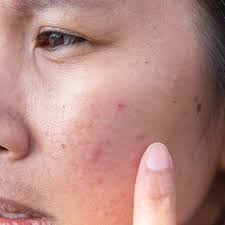Pigmentation Treatment: Real Solutions for Skin Issues
Pigmentation issues, including dark spots, uneven skin tone, and discoloration, are common skin concerns faced by many individuals. These skin irregularities can be caused by a variety of factors such as sun exposure, aging, hormonal changes, and even acne scars. Fortunately, there are several effective pigmentation treatments available that can help restore skin's natural radiance and evenness. This article explores real solutions for pigmentation issues, focusing on non-invasive treatments and methods to achieve clear, glowing skin.
Understanding Pigmentation:
Pigmentation treatment in Dubai (علاج التصبغ في دبي) refers to the color of the skin, which is determined by melanin, the pigment produced by skin cells. Hyperpigmentation occurs when there is an excess production of melanin, leading to dark spots, freckles, or patches. Common types of pigmentation include age spots, sunspots, melasma, and post-inflammatory hyperpigmentation (PIH), which often occurs after an injury or acne. The causes of pigmentation are multifactorial, involving genetic factors, environmental exposure, and lifestyle habits.

Topical Treatments for Pigmentation:
One of the most common ways to treat pigmentation is through topical treatments. Over-the-counter creams containing ingredients like hydroquinone, retinoids, and Vitamin C can help lighten dark spots and even out skin tone. These ingredients work by inhibiting melanin production, promoting skin cell turnover, and improving skin texture. Hydroquinone is particularly effective in fading dark spots, while retinoids boost collagen production, leading to healthier, more even skin. Vitamin C acts as an antioxidant, brightening the skin and reducing discoloration.
Chemical Peels:
Chemical peels are another popular solution for pigmentation issues. This procedure involves the application of a chemical solution to the skin, which exfoliates the top layer and encourages the growth of new, healthier skin. Depending on the severity of the pigmentation, different types of chemical peels—superficial, medium, or deep—can be used to treat a variety of skin concerns. Chemical peels help improve skin tone, texture, and radiance by removing damaged skin cells and stimulating the production of new cells.
Laser Treatments:
For more advanced pigmentation problems, laser treatments are a highly effective option. Lasers work by targeting the excess pigment in the skin, breaking it down and allowing the body to naturally eliminate it. Various types of lasers, such as fractional lasers, Q-switched lasers, and intense pulsed light (IPL), can be used depending on the type and depth of the pigmentation. Laser treatments can provide dramatic results in a relatively short period, making them a popular choice for those looking for fast, visible improvements.
Microneedling:
Microneedling is an innovative treatment that uses tiny needles to create micro-injuries in the skin. These small punctures stimulate the skin's natural healing process and promote collagen production. Microneedling is especially beneficial for treating pigmentation issues such as acne scars, sunspots, and melasma. By enhancing skin renewal and absorption of topical serums, microneedling helps to reduce the appearance of dark spots and promote a more even complexion. It is a minimally invasive procedure with little downtime.
Sun Protection and Prevention:
While treatments are essential for addressing existing pigmentation issues, preventing further pigmentation is equally important. Sun exposure is one of the leading causes of hyperpigmentation, so using sunscreen daily is crucial in preventing new dark spots and protecting the skin from harmful UV rays. Broad-spectrum sunscreens with an SPF of at least 30 should be applied every morning, even on cloudy days. Additionally, wearing hats, seeking shade, and avoiding excessive sun exposure during peak hours can significantly reduce the risk of further pigmentation.
Home Remedies and Natural Treatments:
For those seeking natural remedies, several home treatments can help lighten pigmentation over time. Ingredients like lemon juice, aloe vera, turmeric, and green tea are known for their skin-brightening and healing properties. While these remedies may not produce the same quick results as medical treatments, they can still be a gentle and soothing way to address pigmentation concerns. Regular use of these natural remedies, combined with proper skincare routines, can support skin health and gradually fade dark spots.
Conclusion:
Pigmentation issues can significantly affect one's confidence, but with the right treatments, it's possible to achieve clearer, more even skin. From topical creams to advanced treatments like chemical peels, lasers, and microneedling, various options are available to treat and prevent pigmentation. Ensuring proper sun protection and incorporating natural remedies can further enhance the results. If you're struggling with pigmentation, exploring these solutions will bring you closer to the radiant, even-toned skin you desire.
